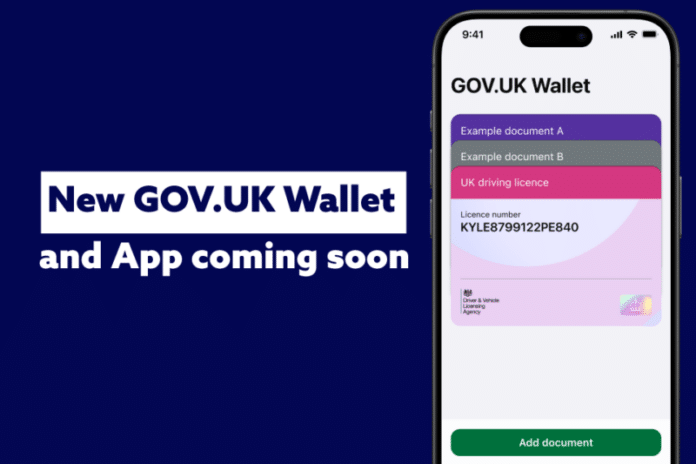
Spanish
Dutch
French
German
Norwegian Bokmål
Polish
Swedish
The UK government has unveiled plans to introduce a digital wallet app that will allow citizens to carry official identification documents, such as driving licences, veteran cards, and potentially passports, on their smartphones. Announced by Peter Kyle, the Secretary of State for Science, Innovation, and Technology, the app is set to launch in June and aims to simplify interactions with government services.
Kyle highlighted the app’s transformative potential, stating, “The overflowing drawer rammed with letters from the government and hours spent on hold to get a basic appointment will soon be consigned to history.” The digital wallet is part of a broader effort to modernize government services and streamline processes for citizens.
INITIAL ROLLOUT AND FUTURE PLANS
The first documents available through the app will be driving licences and veteran cards, with plans to gradually include other government-issued credentials such as student loan accounts, vehicle tax information, benefit details, childcare records, and local council services. Discussions are also underway with the Home Office to incorporate digital passports into the wallet.
However, while digital passports would complement physical copies, their use for international travel would depend on the adoption of compatible systems by other countries. “We’re keeping a close eye on international standards,” Kyle said, adding that the government aims to capitalize on these advancements as global protocols evolve.
HOW THE DIGITAL WALLET WILL WORK
The app, similar to the digital wallets found on Apple and Google devices, will be tied to a person’s individual ID. It will enable citizens to instantly verify their status and share credentials securely. For example, a football coach could instantly provide a disclosure requirement certificate, or benefit recipients could quickly claim welfare discounts from participating traders.
Addressing concerns about data security, Kyle assured the public that the app’s design adheres to existing data protection laws. He emphasized that losing a phone would not result in losing access to the wallet, as recovery systems would be in place. Additionally, the app will leverage the advanced security features of modern smartphones, including facial recognition technology, to ensure user safety.
ENHANCING ACCESSIBILITY AND EFFICIENCY
Kyle emphasized that the digital wallet would enhance accessibility rather than alienate those unable to access online services. “Making government services more online does not mean that those people who can’t access the internet will be left behind,” he said. By streamlining digital processes, the government aims to allocate more human resources to individuals who require in-person support.
The app represents a significant shift in the relationship between citizens and the state, particularly for younger generations accustomed to digital solutions. Kyle argued that people under 18, who have grown up with smartphones, view paper-based bureaucracy as outdated.
A MODERN VISION FOR PUBLIC SERVICES
Developed within the past six months under the Labour government, the app signifies a broader commitment to leveraging technology to improve public services. Speaking at the launch event in east London, which was modeled after Silicon Valley-style product unveilings, Kyle said, “We are going to transform the relationship between citizen and state.”
The app promises a future where government services are more efficient, accessible, and human-centered, delivering a modernized experience for all UK citizens.
Spanish
Dutch
French
German
Norwegian Bokmål
Polish
Swedish











